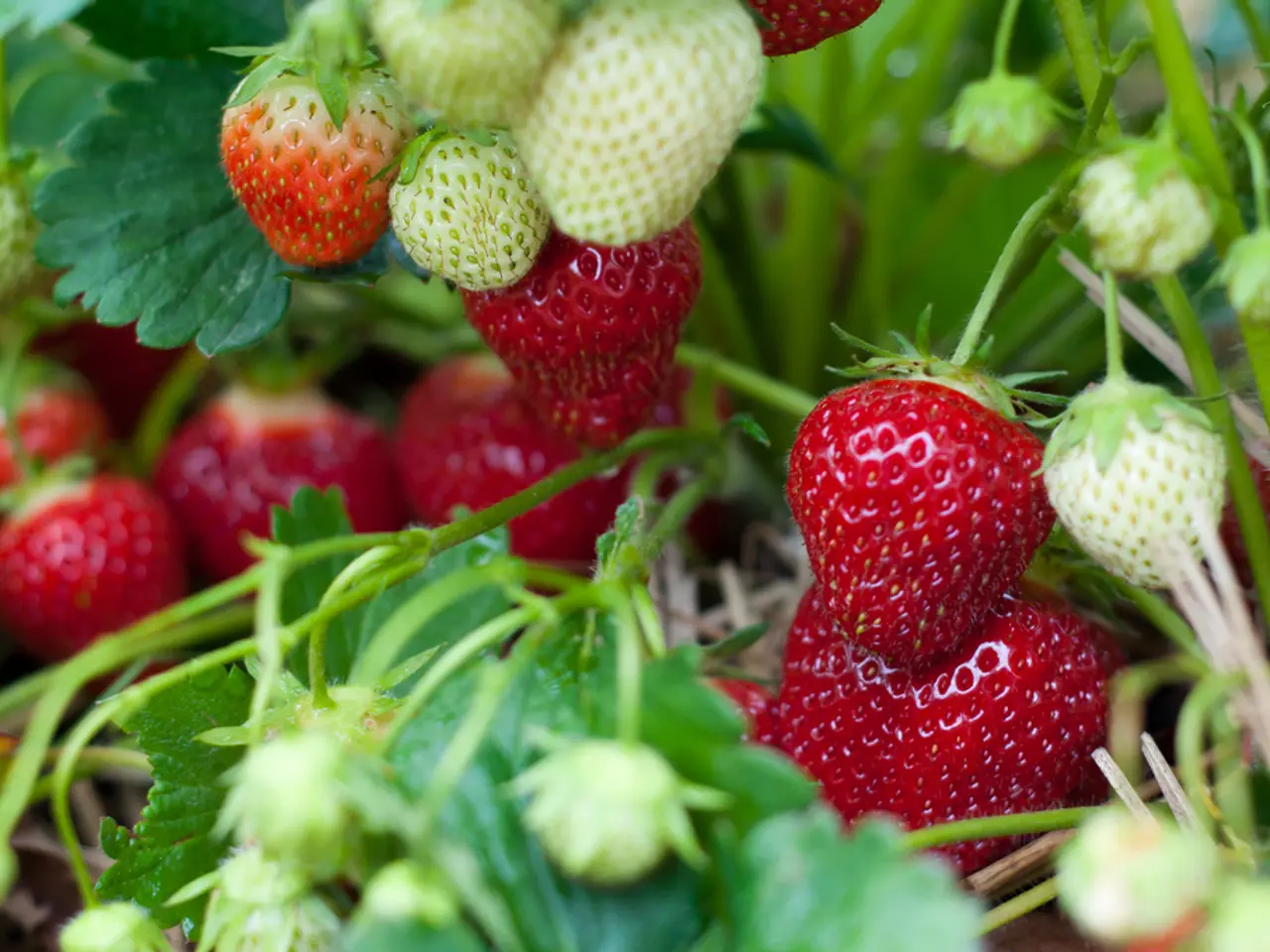Robotics company TRIC aggressively expanding strawberry farm coverage throughout California, fuelled by new financing.
TRIC Robotics Revolutionizes Strawberry Farming with Autonomous UV-C Robots
TRIC Robotics, a pioneering firm based in the United States, is making waves in the agricultural industry with its fleet of autonomous robots designed to change the landscape of strawberry farming. These robots, equipped with UV-C light and vacuum-based insect removal systems, offer a non-chemical, automated pest and disease control solution that promises to reduce chemical pesticide use and labor costs.
The robots, resembling tractor-sized vehicles, are specifically designed to target major problems such as mites, mildew, and mold in strawberry farms. TRIC Robotics operates via a service model, allowing farmers to pay for pest control without the need for upfront investment in the robots themselves. This approach not only cuts chemical use, lowering environmental impact and pesticide residue on fruit, but also reduces labor costs associated with manual spraying and monitoring.
TRIC Robotics' innovative solution employs UV-C light as an effective substitute for chemical fungicides and miticides. This light, when used on the crops, kills bacteria, fungal pathogens, and damages pest populations, particularly mite eggs. Simultaneously, the robots' built-in vacuums physically remove insect residues without causing crop damage.
These robots are designed to treat large acreage overnight, reducing the demand for labor. They navigate the farms using GPS, cameras, encoders, and potentiometers, building a map associated with the farm to follow. TRIC Robotics has already managed over 1000 acres in Santa Maria with nine operational machines and three more in production. The company aims to expand its fleet from nine units to 40-50 units and move into new strawberry farms in Oxnard and Watsonville.
The 'Luna' robot, TRIC Robotics' flagship model, is a large tractor-like vehicle powered by diesel, used to power the UV-C lights and bug-sucking vacuums. The robots operate at night to create maximum damage with UV-C light and avoid repair mechanisms during the day.
TRIC Robotics' seed round was supported by several investors, including Garage Capital, Todd and Rahul Capital, Valor Equity Partners, Lucas Venture Group, Spacecadet, Redstick Ventures, and strategic angels, including the founders of Clearpath Robotics and New Leader Manufacturing. Existing investors including Undeterred Capital, Embark Ventures, Soundboard Venture Fund, and Central Coast Ventures also participated in the seed round.
The firm was founded by Dr. Adam Stager and Vishnu Somasundaram at the University of Delaware. Strawberries, being among the most heavily sprayed and labor-intensive crops in agriculture, are a prime target for TRIC Robotics' services. The company started with half-acre plots in 2021 and has progressed to managing 50-acre plots. TRIC Robotics is not just a high-tech science project anymore, but a commercial service provider offering a solution that works better than chemicals.
In the future, TRIC Robotics plans to add new capabilities, including the application of beneficial insects or mites to control pest populations. As the company scales up its fleet and expands into new regions, it is poised to become a leader in three strawberry regions in California. TRIC Robotics' innovative approach to pest control is a game-changer for the agricultural industry, offering a sustainable, cost-effective, and labor-saving solution for farmers.
- TRIC Robotics, with its focus on environmental-science, is leveraging technology in the form of autonomous UV-C robots to revolutionize the agricultural sector and combat climate-change by reducing chemical pesticide use in strawberry farming.
- To finance this groundbreaking project, TRIC Robotics has received backing from investors like Garage Capital, Todd and Rahul Capital, Valor Equity Partners, and others, indicating a strategic alignment between finance, investing, and business interests.
- As TRIC Robotics continues expanding its fleet, it seeks job-search opportunities for skilled professionals in data-and-cloud-computing, artificial-intelligence, and engineering to develop and manage its robots, contributing to career-development and education-and-self-development.
- Meanwhile, the sports industry could also benefit from partnerships with TRIC Robotics, as the high-precision navigation systems in the robots could facilitate the growth of vertical farming, potentially reducing food transportation costs and lowering carbon emissions.
- Furthermore, the company's work in removing harmful pests from crops could inspire associated initiatives in the environmental-science field, such as safeguarding natural habitats and promoting biological diversity.
- The skills-training required to maintain and operate TRIC Robotics' innovative machines could create new educational opportunities in technical vocational education and training programs, bridging the gap between academia and hands-on, practical learning experiences.
- As TRIC Robotics continues to innovate and adapt, it is poised not just to disrupt the strawberry farming industry but also to inspire further advancements in other agricultural industries, fostering a brighter and more sustainable future for both the environment and the economy.




